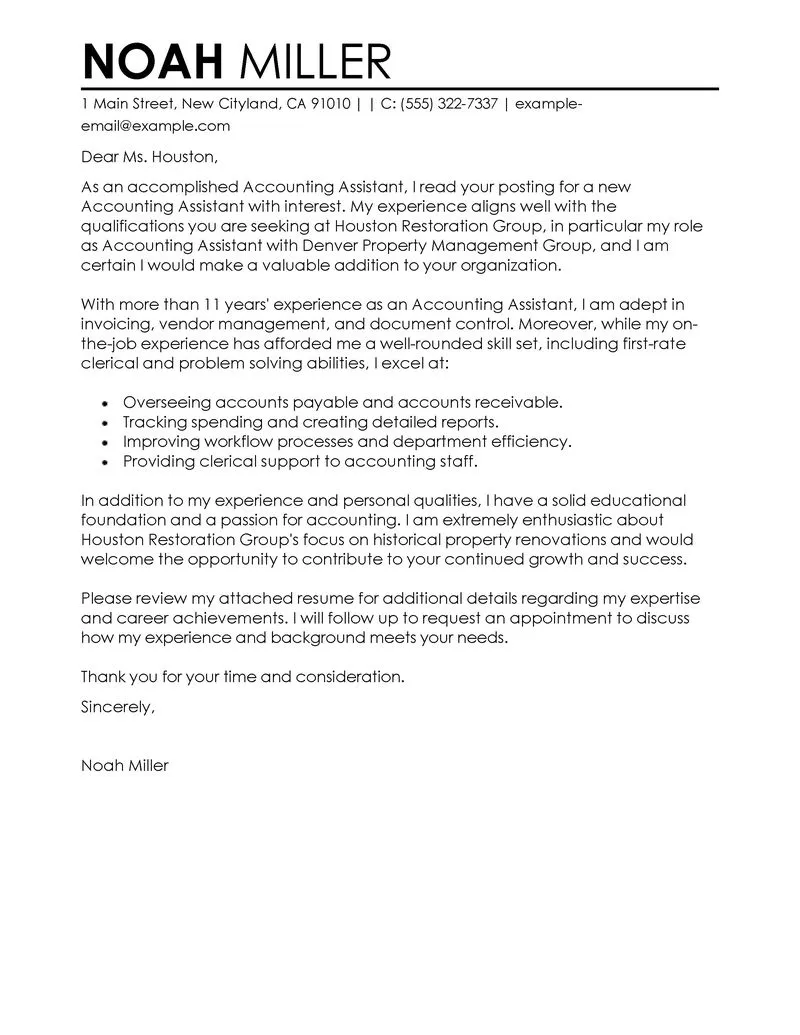Crafting an Accounting Cover Letter
In the competitive field of accounting, a well-crafted cover letter is your first opportunity to make a positive impression on potential employers. It serves as more than just a formality; it’s a crucial tool for showcasing your skills, experience, and enthusiasm for the role. A strong cover letter complements your resume by providing context and personality, allowing you to stand out from other applicants. This guide will provide you with the essential components and techniques to create a compelling cover letter that grabs the attention of hiring managers and increases your chances of landing an interview.
Essential Elements of a Cover Letter
A successful accounting cover letter typically includes several key elements that work together to create a professional and persuasive document. These elements include clear contact information, a personalized greeting, a strong opening statement, detailed highlights of your skills and experiences, quantifiable achievements, a tailored approach to the specific job, a demonstration of your company research, a well-structured closing, and a call to action. Each of these sections is crucial for conveying your qualifications and making a strong impression. Following these guidelines will help you in creating a cover letter that sets the stage for a successful job application.
Contact Information and Greetings
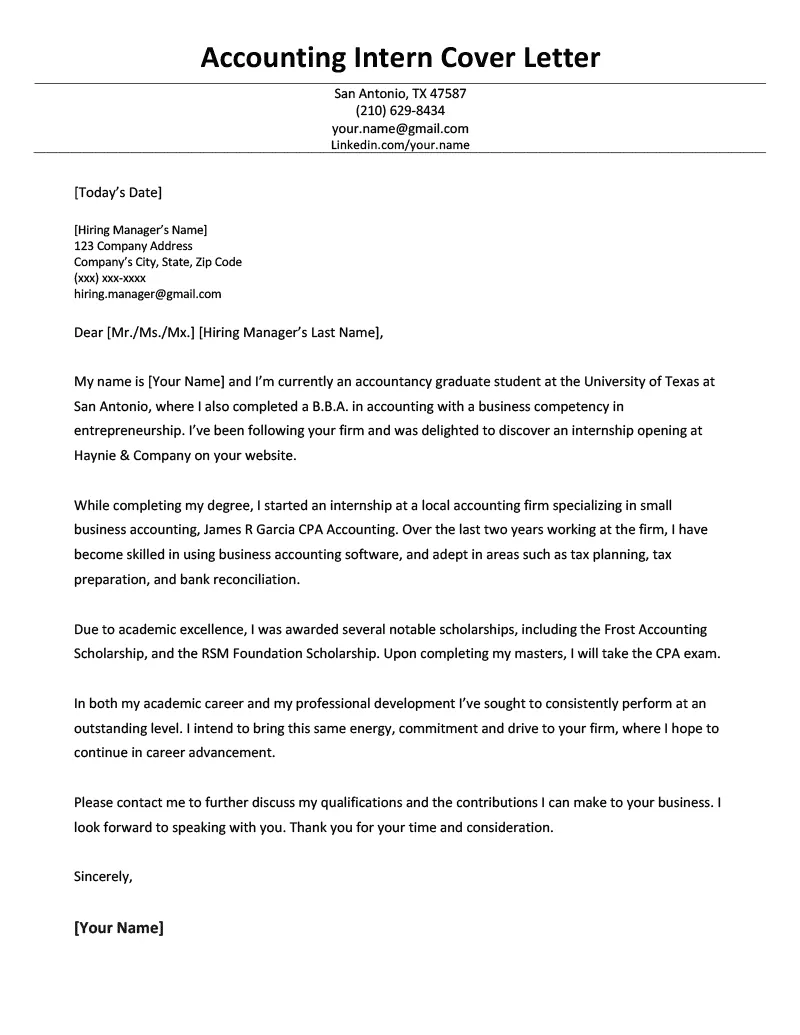
Start your cover letter by including your full name, address, phone number, and email address. This information ensures that the hiring manager can easily reach you. Immediately below your contact details, include the date and the recipient’s contact information, if known. If possible, address the cover letter to a specific person (e.g., the hiring manager or the department head) rather than using a generic greeting like ‘To Whom It May Concern.’ Personalization shows that you’ve taken the time to learn about the company and are genuinely interested in the role.
Highlighting Your Accounting Skills
The body of your cover letter should focus on highlighting your relevant accounting skills. Mention specific software proficiency (e.g., QuickBooks, SAP, Oracle), technical skills (e.g., financial analysis, budgeting, tax preparation), and soft skills (e.g., communication, teamwork, problem-solving). Tailor these skills to match the job description; emphasize the qualifications that the employer is seeking. Use examples from your past experiences to demonstrate how you’ve successfully used these skills in practical situations. For instance, if the job requires experience with financial reporting, share a brief story about how you prepared financial statements in a previous role.
Quantifying Achievements
One of the most effective ways to impress a potential employer is to quantify your achievements. Rather than simply stating your responsibilities, provide specific numbers to illustrate your accomplishments. For example, instead of saying ‘Managed accounts payable,’ you could write ‘Managed accounts payable for over 500 vendors, resulting in a 15% reduction in processing time.’ Use metrics to demonstrate the impact of your work, such as cost savings, efficiency improvements, or increased revenue. Quantifiable achievements add credibility to your claims and help you stand out from other candidates.
Showcasing Your Experience
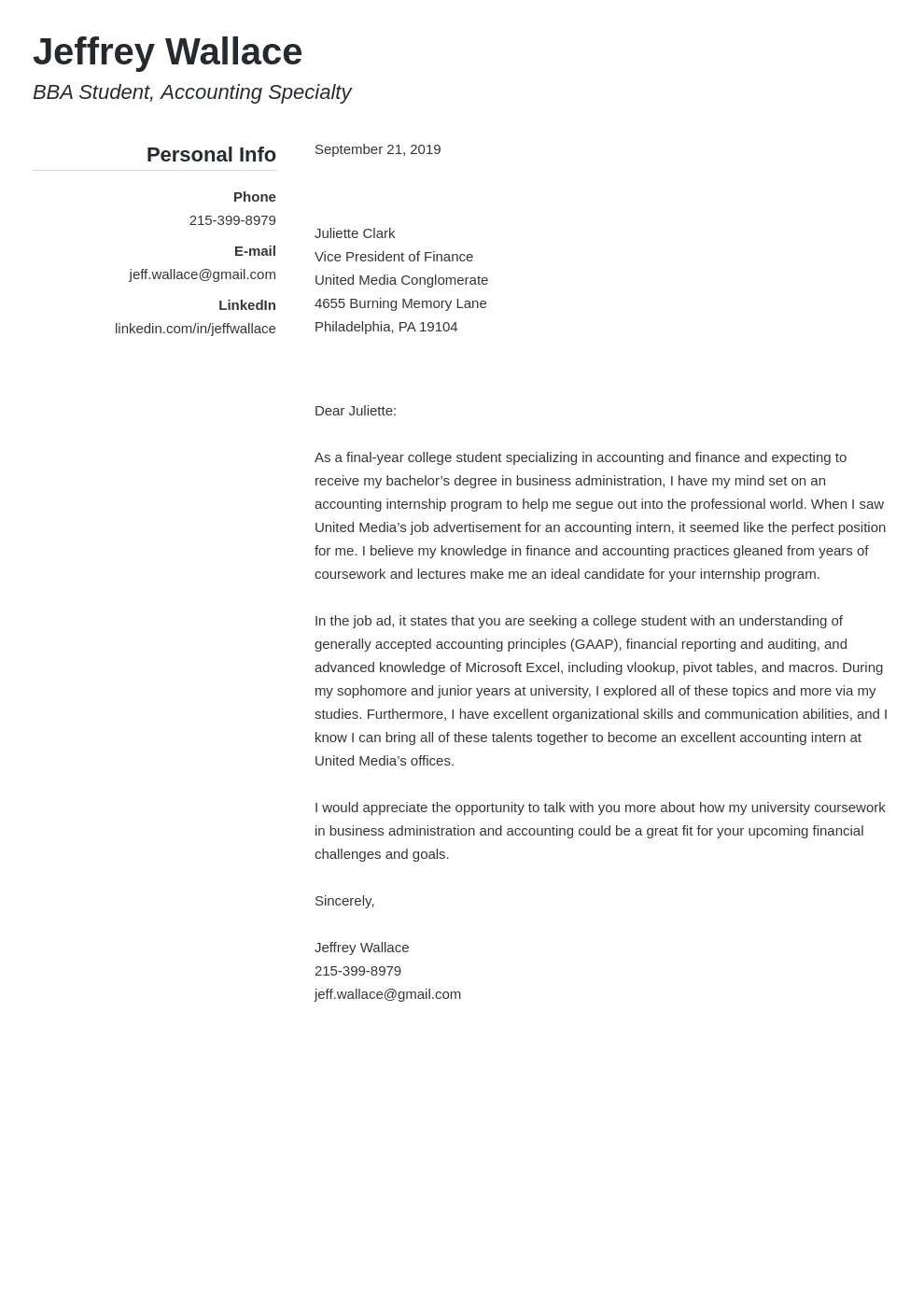
Detail your relevant work experience in a clear and concise manner. Briefly describe your previous roles, including the company name, job title, and dates of employment. Focus on the responsibilities and accomplishments that are most relevant to the job you are applying for. Use action verbs to describe your duties and achievements (e.g., ‘Prepared,’ ‘Analyzed,’ ‘Managed,’ ‘Implemented’). Tailor each description to the specific requirements outlined in the job description, showcasing how your experience aligns with their needs. Emphasize any unique projects or initiatives you’ve worked on that highlight your skills and knowledge.
Tailoring the Letter to the Job
Avoid using a generic cover letter for every job application. Tailor your letter to each specific role by carefully reviewing the job description and highlighting the skills and experiences that align with the employer’s requirements. Customize your cover letter by using keywords and phrases from the job posting. Demonstrate your understanding of the company’s needs and show how your qualifications make you a suitable candidate. This personalized approach demonstrates your genuine interest in the position and increases your chances of success. A customized cover letter demonstrates your commitment to the role and company.
Researching the Company
Before writing your cover letter, conduct thorough research on the company. Understand their mission, values, and recent projects. This knowledge allows you to personalize your letter and demonstrate your genuine interest in the organization. Reference the company’s goals or recent achievements to show that you’ve taken the time to learn about them. Addressing the hiring manager by name and mentioning specific company initiatives demonstrates your interest in the position and aligns your career goals with the company’s values. Showing this level of preparation will undoubtedly make a positive impression.
Addressing the Hiring Manager
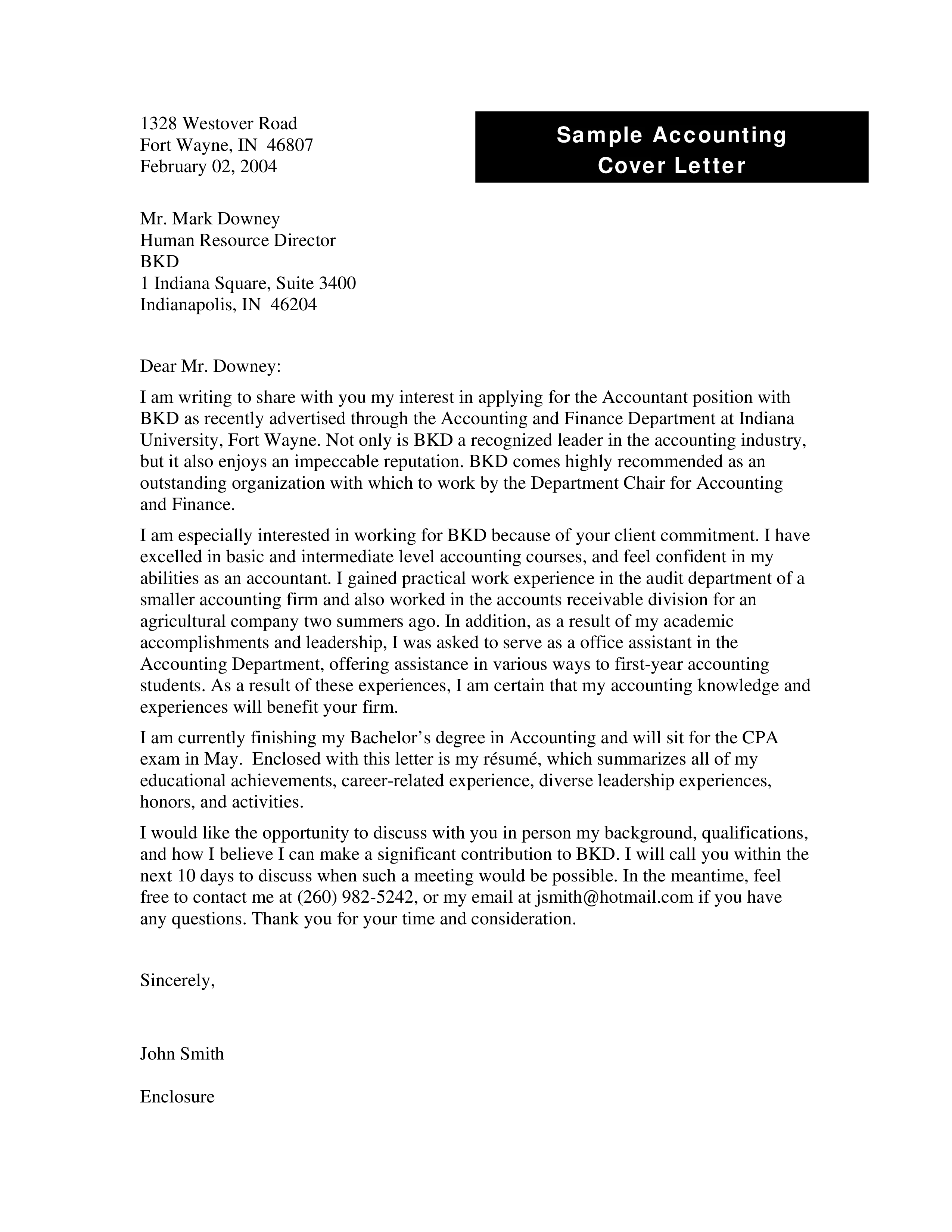
Whenever possible, address your cover letter to a specific person. Research the hiring manager’s name and title; this personal touch shows that you’ve taken the time to find out who will be reviewing your application. If you are unable to find a specific person, use a professional salutation, such as ‘Dear Hiring Manager’ or ‘Dear [Department Name] Team.’ Avoid generic greetings like ‘To Whom It May Concern,’ as these can make your application feel impersonal and less engaging. Always use a professional tone to maintain a polished and respectful image.
Formatting and Tone
The formatting and tone of your accounting cover letter can significantly influence how the hiring manager perceives you. Professional formatting and a confident, yet respectful, tone are essential for making a positive first impression. These elements contribute to the overall impact of your cover letter and ensure your message is communicated effectively. Proper formatting indicates attention to detail, while a professional tone conveys your capabilities and suitability for the role. By paying close attention to these aspects, you can enhance your cover letter’s effectiveness and increase your chances of securing an interview.
Professional Formatting Tips
Use a clean and easy-to-read font such as Times New Roman, Arial, or Calibri, with a font size between 10 and 12 points. Ensure your letter is single-spaced with a space between each paragraph. Use standard 1-inch margins. Structure your letter logically, with clear headings and paragraphs to make it easy to follow. Avoid using excessive formatting or overly decorative elements. Make sure that the format is consistent throughout the document. Keep the document to one page, if possible, for easy readability.
Maintaining a Professional Tone
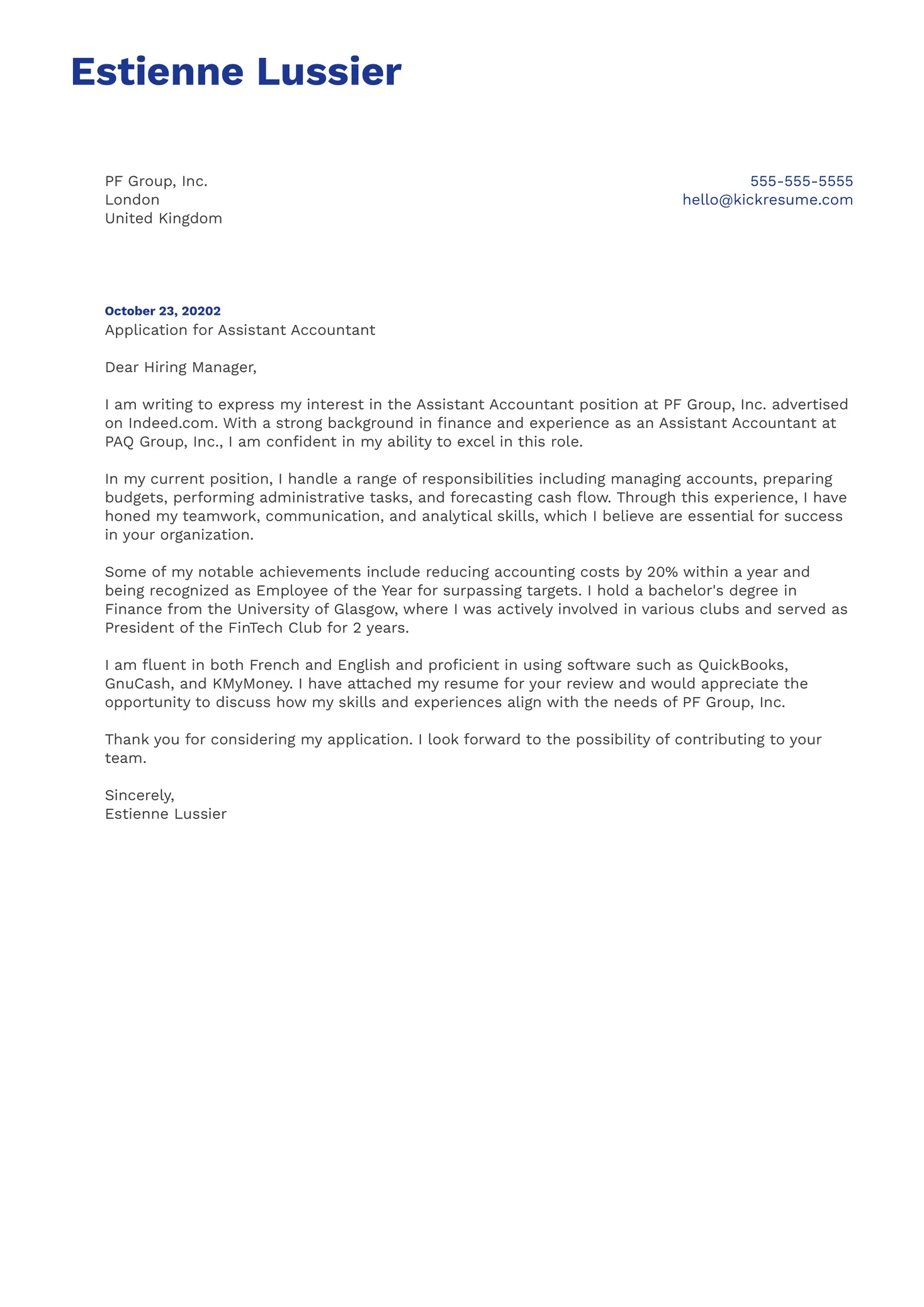
Use a professional and respectful tone throughout your cover letter. Avoid informal language, slang, or jargon. Use proper grammar, punctuation, and spelling. Be confident in your abilities, but avoid being arrogant or overly assertive. Highlight your skills and experiences in a concise and positive manner. Proofread the entire document carefully for any errors or inconsistencies. Always maintain a tone that reflects your professionalism and genuine interest in the position. Use active voice and clear language to make your points, always remember that the goal is to reflect professionalism.
Examples of Effective Cover Letters
Reviewing examples of effective cover letters can provide valuable insights into how to structure and write your own. Examine different examples tailored to various accounting roles to gain a clear understanding of what works. Analyzing these samples helps you understand how successful candidates present their skills and experience. Tailoring your cover letter to the specific job requirements is essential. By studying these models, you can effectively learn the nuances of writing cover letters that impress potential employers.
Entry-Level Accounting Cover Letter Example
For entry-level positions, highlight relevant coursework, internships, and any volunteer experience. Focus on transferable skills, such as attention to detail, analytical abilities, and proficiency in accounting software. Emphasize your eagerness to learn and contribute to the team. Mention any certifications or licenses you have, such as a CPA license. Use clear and concise language, demonstrating your understanding of accounting principles and practices. Showcase your academic achievements. Tailor your letter to show your genuine interest in the company and the role, as well as your eagerness to learn and grow in the accounting field.
Experienced Accountant Cover Letter Example
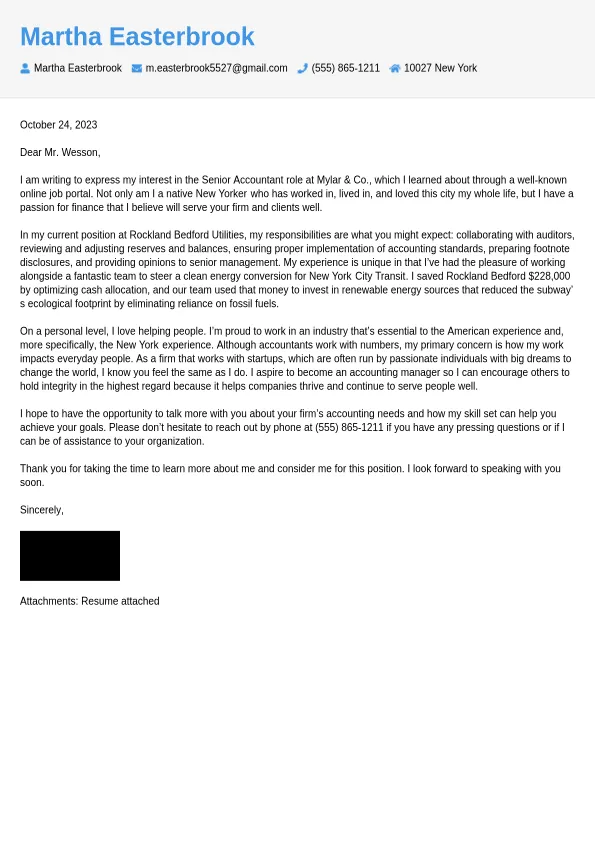
Experienced accountants should highlight their extensive professional experience. Detail your accomplishments and responsibilities in previous roles. Quantify your achievements whenever possible; use metrics to demonstrate your impact (e.g., ‘Reduced expenses by 15%’). Showcase leadership skills and expertise in specific accounting areas, like financial reporting, budgeting, or tax preparation. Tailor your letter to align with the specific requirements outlined in the job description, emphasizing your relevant skills and demonstrating how you can contribute to the company’s success. Showcasing your experience and accomplishments can highlight your value as a potential hire.
Addressing Common Mistakes
Avoiding common mistakes can significantly improve the quality and effectiveness of your accounting cover letter. Errors in these documents can create a negative impression and undermine your chances of success. By paying attention to these common pitfalls, you can ensure your cover letter is polished and professional. Addressing these mistakes will help you create a positive impact and showcase your capabilities. Taking the time to review these tips will enhance your chances.
Typos and Grammatical Errors
Typos and grammatical errors can undermine your credibility and make you appear careless. Proofread your cover letter carefully to eliminate any errors in spelling, grammar, and punctuation. Use a grammar checker and consider having a colleague or friend review your letter as well. These errors can make you appear unprofessional, so be sure to take your time and review the document before sending it. Correcting all errors is a must to ensure that you present yourself in the best possible light.
Generic Cover Letters
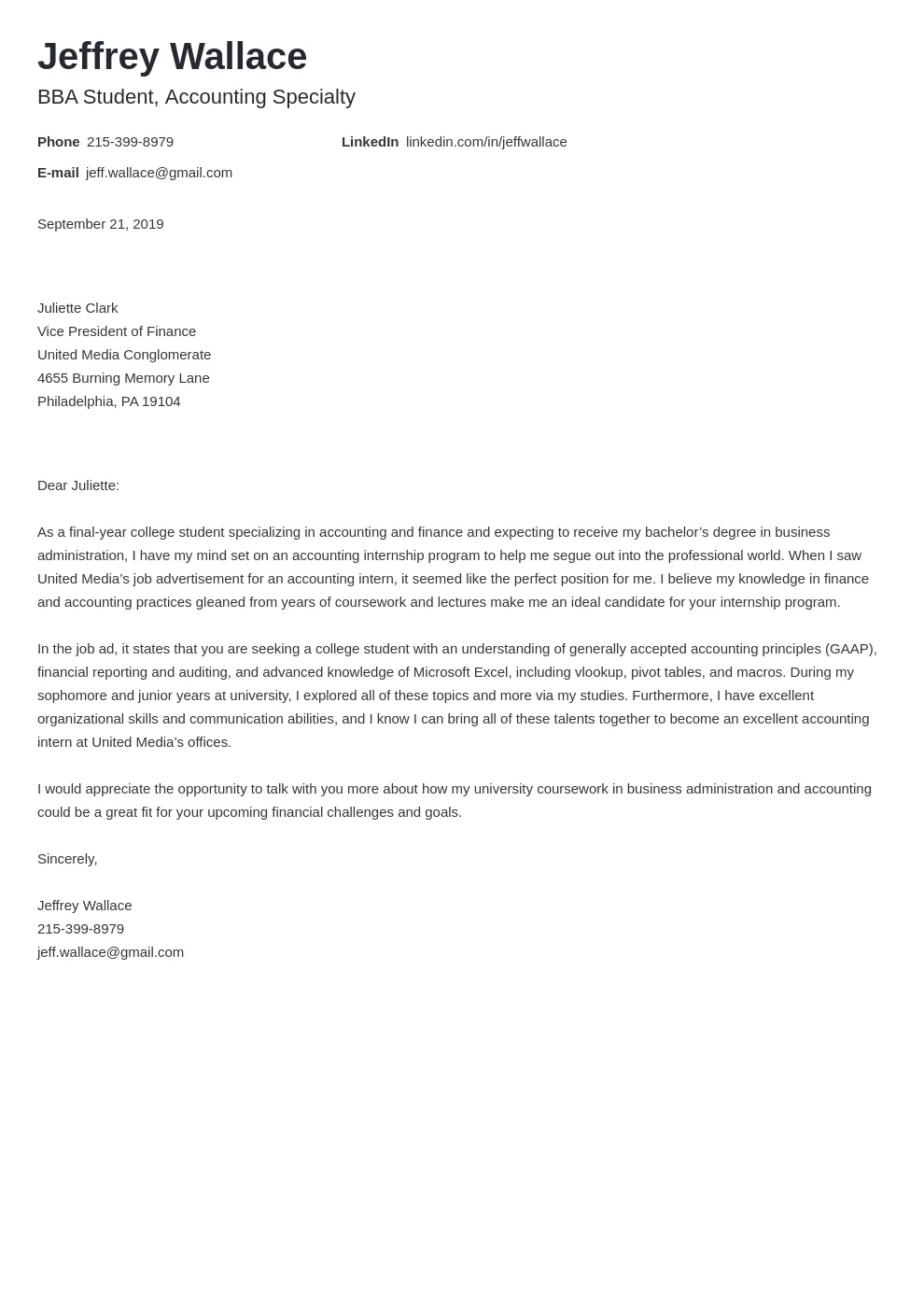
Avoid using a generic cover letter that is not tailored to the specific job or company. Such letters show a lack of interest and attention to detail. Always customize your cover letter to highlight the skills, experience, and qualifications that are most relevant to the position. Research the company and tailor your letter to demonstrate your understanding of their values and goals. Demonstrating that you have done your research makes you seem more invested and helps you stand out from other applicants. Show that you are genuinely interested in the position.
The Importance of a Strong Closing
The closing of your cover letter is a vital opportunity to leave a lasting impression on the hiring manager. It’s your chance to reiterate your interest in the position, express your enthusiasm, and prompt the reader to take action. A well-crafted closing will reinforce your key qualifications and make a strong, positive impression. Pay close attention to this part of the letter; the ending of the letter is as important as the beginning, so make sure to make it count. Creating a strong closing will help to drive the hiring manager towards wanting to learn more about you.
Expressing Enthusiasm
Express your enthusiasm for the role and the company in your closing paragraph. Demonstrate your excitement about the opportunity and your eagerness to contribute to the team. This can include sharing why you want to work for the company or what excites you about the position. This enthusiasm can highlight your interest in the position and encourage the hiring manager to view you positively. Conveying your excitement and enthusiasm helps in creating a positive and memorable impression.
Call to Action
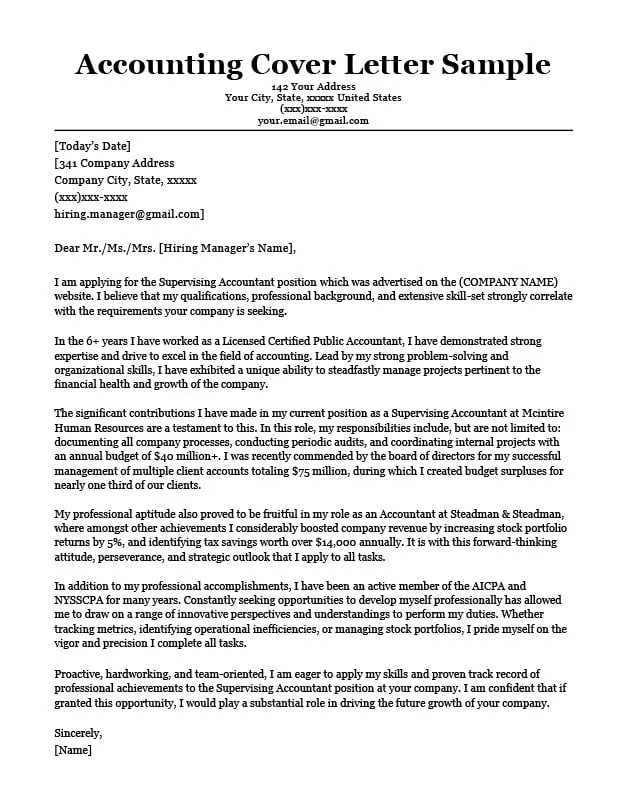
Include a clear call to action in your closing paragraph. State that you are eager to discuss your qualifications in an interview and provide your contact information again. Encourage the hiring manager to contact you to schedule a meeting. Make it easy for the hiring manager to take the next step by including a specific call to action. A clear and straightforward call to action makes it simple for the hiring manager to act on the document. Make sure that your contact information is available so they can quickly find it and reach out to you.
Proofreading and Editing
Before submitting your accounting cover letter, proofread and edit it thoroughly. Ensure that your letter is free of errors, that the format is consistent, and that the tone is professional. Double-check all details, including the recipient’s name, company name, and job title. Reading your letter aloud can help you catch any awkward phrasing or grammatical errors. Having another person review your cover letter provides a fresh perspective and can catch mistakes you might have missed. Thorough proofreading and editing are crucial for conveying professionalism and attention to detail.
Final Review Checklist
Before submitting your cover letter, use a final review checklist to ensure that you haven’t missed any essential elements. Check that your contact information is accurate, the letter is tailored to the specific job, the skills and achievements are highlighted, the tone is professional, and the closing includes a call to action. Verify that there are no typos or grammatical errors. Make sure that the layout and formatting is easy to read and presents a clean and polished appearance. Confirm that you have addressed the letter to the correct person. This checklist will improve the quality of the cover letter.
